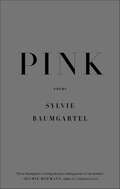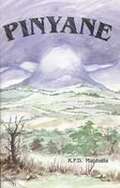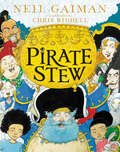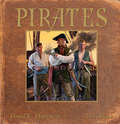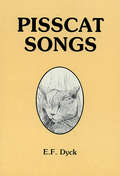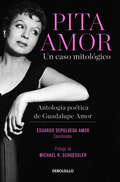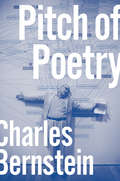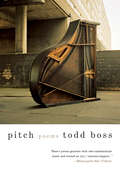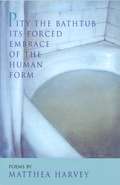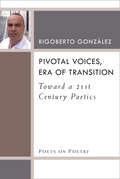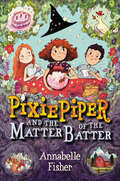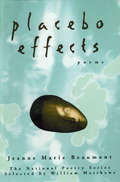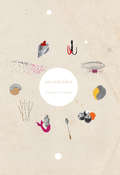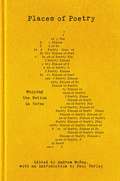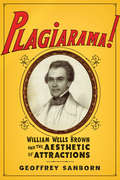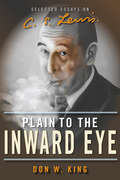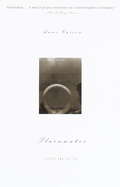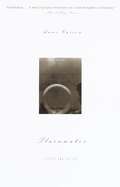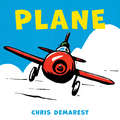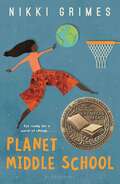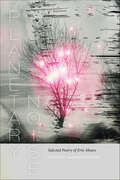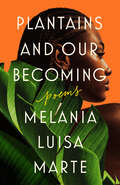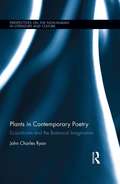- Table View
- List View
Pink: Poems
by Sylvie BaumgartelA sharp, visceral new collection of poetry that touches on art, history, sex, bodies, language, and the color pinkThe sack of Rome,The siege of Florence.The lights twinkle pink in Fiesole.Pink furls, pink buds.Wet pink veiny hearts in spring.Pink can mean so many things.Sylvie Baumgartel’s Pink moves from the shadow of the Ponte Vecchio to a mission church in Santa Fe, from Daily Mail reports to a photograph of a girl from Tierra del Fuego, from a grandmother’s advice (“Don’t go to Smith and don’t get fat”) to legs wrapped around “a man who calls me cake.”Baumgartel, a poet of fierce, intimate, wry language, delivers a second collection about art, history, violence, bodies, fear, pain, reckoning, and transcendence. The poems travel back to the historical, linguistic, and emotional sources of things while surging forward with a stirring momentum, creating a whirlwind of birth and destruction.
Pinyane: UBC Contracted
by K.P.D. MaphallaK.P.D. Maphalla ke sethothokisi se sefutho, se tswileng tjaro dithothokising tsa puo ya Sesotho, tsa kajeno. Hara dikgau tseo a seng a di hapile ka bothothokisi, re ka qoholla tse latelang. • Muhope wa Moiloa, 1985 • Mohope wa Mofolo, 1991 Maphalla o se a ngotse dibuka tse fetang 12 tsa dithothokiso. Ho bonahala eka dikgolo di sa tla hobane kajeno ke enwa o phetlela mohatla nku mashodu, o pepesa Pinyane. Re se re tla utlwa teng. Ke eo he, Pinyane.
Pinyane: UBC Uncontracted
by K.P.D. MaphallaK.P.D. Maphalla ke sethothokisi se sefutho, se tswileng tjaro dithothokising tsa puo ya Sesotho, tsa kajeno. Hara dikgau tseo a seng a di hapile ka bothothokisi, re ka qoholla tse latelang. • Muhope wa Moiloa, 1985 • Mohope wa Mofolo, 1991 Maphalla o se a ngotse dibuka tse fetang 12 tsa dithothokiso. Ho bonahala eka dikgolo di sa tla hobane kajeno ke enwa o phetlela mohatla nku mashodu, o pepesa Pinyane. Re se re tla utlwa teng. Ke eo he, Pinyane.
Pirate Stew
by Neil GaimanMeet LONG JOHN McRON, SHIP'S COOK . . . and the most unusual babysitter you've ever seen. Long John has a whole crew of wild pirates in tow, and—for one boy and his sister—he's about to transform a perfectly ordinary evening into a riotous adventure beneath a pirate moon. It's time to make some PIRATE STEW. Marvelously silly and gloriously entertaining, this tale of pirates, flying ships, doughnut feasts and some rather magical stew is perfect for all pirates, both young and old.With a deliciously rhyming text from master storyteller Neil Gaiman and spellbinding illustrations by the supremely talented Chris Riddell, this is the picture book of the year! Pirate Stew! Pirate Stew!Pirate Stew for me and you!Pirate Stew, Pirate StewEat it and you won’t be blueYou can be a pirate too!
Pirates
by David L. Harrison Dan BurrGlamorous, swashbuckling, daring adventurers? Pirates have had good publicity for a long time. But they were really a bunch of misfits, thugs, and ne'er-do-wells who spent most of their time bored, waiting for a few moments of excitement and rich booty that could very well get them wounded or killed, or captured and executed. Still, a pirate's life was chosen by many, and this poetry collection describes the highs and lows and everything in between for those who swore the oath of the Brotherhood.
Pisscat Songs
by E. F. DyckEd Dyck finds that you cannot say "piss" on the radio in Saskatoon. There wasn't very much radio promotion of his book. That's a shame. Everybody should know about the cat Jack and the world Dyck compacts around him in 15 "sonnets."
Pita Amor: Antología poética de Guadalupe Amor
by Eduardo Sepúlveda Amor Pita Amor Michael K. Schuessler«Esta antología poética contiene los versos que nosotros, los editores, consideramos más representativos de la poeta Guadalupe Amor. […] Esperemos que este gran esfuerzo tenga el poder para formar a nuevos lectores de la obra poética de Guadalupe Amor, así como también constituir un cuerpo poético digno de sus fieles lectores —algunos desde sus primeros libros— que, a su vez, cumpla con sus rigurosas expectativas literarias.» Michael K. Schuessler «Mujer polémica y contradictoria, Guadalupe Amor, mejor conocida como Pita Amor, fue una poeta admirada -aunque también criticada- tanto por los que la trataron a lo largo de su vida como por los que la han conocido a través de su obra poética. En esta, Pita plasmó y expresó sus angustias existenciales, sus dudas sobre Dios, sus ansias sobre la muerte, sus pulsiones amorosas y eróticas y sus visiones acerca de sí misma y del mundo. En su vida cohabitaron el talento-rayando en lo sublime- con el hedonismo; el arrebato místico con los placeres mundanos; la vanidad exultante con las heridas inferidas por las tragedias personales. Con descarnada sinceridad -sólo en ocasiones y de manera velada-, Pita desnudó a través de su poesía estas facetas de su agitada existencia.» Eduardo Sepúlveda Amor
Pitch of Poetry
by Charles BernsteinPraised in recent years as a "calculating, improvisatory, essential poet" by Daisy Fried in the New York Times, Charles Bernstein is a leading voice in American literary theory. Pitch of Poetry is his irreverent guide to modernist and contemporary poetics. Subjects range across Holocaust representation, Occupy Wall Street, and the figurative nature of abstract art. Detailed overviews of formally inventive work include essays on--or "pitches" for--a set of key poets, from Gertrude Stein and Robert Creeley to John Ashbery, Barbara Guest, Larry Eigner, and Leslie Scalapino. Bernstein also reveals the formative ideas behind the magazine L=A=N=G=U=A=G=E. The final section, published here for the first time, is a sweeping work on the poetics of stigma, perversity, and disability that is rooted in the thinking of Edgar Allan Poe, Emily Dickinson, Ralph Waldo Emerson, and William Blake. Pitch of Poetry makes an exhilarating case for what Bernstein calls echopoetics: a poetry of call and response, reason and imagination, disfiguration and refiguration.
Pitch: Poems
by Todd Boss2012 Poetry Midwest Booksellers Choice Award winner "[Todd Boss] can make any rhyme feel like a concealed weapon." --Sherman Alexie With poems about loss, home, marriage, and the inner music of our lives, Pitch is a series of variations on an overturned piano. By turns bright and dark like the keys on a keyboard, these poems demonstrate the range of one of contemporary poetry's most musical poets, a master of internal rhyme. from "Overtures on an Overturned Piano" . . . our hi-beams played across the gleaming bed of snowdrifted bramble where it lay, moaning chaotically . . .
Pity the Bathtub Its Forced Embrace of the Human Form
by Matthea HarveyPoems, some of them funny, some with a serious undercurrent, but all very excellent
Pity the Bathtub Its Forced Embrace of the Human Form
by Matthea HarveyComic, elegaic, and always formally intricate, using political allegory and painterly landscape, philosophic story and dramatic monologue, these poems describe a moment when something marvelous and unforeseen alters the course of a single day, a year, or an entire life.
Pivotal Voices, Era of Transition: Toward a 21st Century Poetics
by Rigoberto GonzalezPivotal Voices, Era of Transition gathers Rigoberto González’s most important essays and book reviews, many of which consider the work of emerging poets whose identities and political positions are transforming what readers expect from contemporary poetry. A number of these voices represent intersectional communities, such as queer writers of color like Natalie Díaz, Danez Smith, Ocean Vuong, and Eduardo C. Corral, and many writers, such as Carmen Giménez Smith and David Tomás Martínez, have deep connections to their Latino communities. Collectively, these writers are enriching American poetry to reflect a more diverse, panoramic, and socially conscious literary landscape. Also featured are essays on the poets’ literary ancestors—including Juan Felipe Herrera, Alurista, and Francisco X. Alarcón—and speeches that address the need to leverage poetry as agency. This book fills a glaring gap in existing poetry scholarship by focusing exclusively on writers of color, and particularly on Latino poetry. González makes important observations about the relevance, urgency, and exquisite craft of the work coming from writers who represent marginalized communities. His insightful connections between the Latino, African American, Asian American, and Native American literatures persuasively position them as a collective movement critiquing, challenging, and reorienting the direction of American poetry with their nuanced and politicized verse. González’s inclusive vision covers a wide landscape of writers, opening literary doors for sexual and ethnic minorities.
Pixie Piper and the Matter of the Batter (Pixie Piper Ser. #2)
by Annabelle FisherIn this sequel to The Secret Destiny of Pixie Piper, Pixie Piper—who is a direct descendent of Mother Goose—and her adorable gosling, Destiny, head to Chuckling Goose Farm, where she bakes magical wishing cakes, makes new friends, and defends the farm from the evil Sinister Sisters. “A fresh new addition to middle grade stories of magic and friendship; recommended for fans of . . . Chris Colfer’s The Land of Stories.”—School Library JournalPixie Piper and her best friend, Gray, are off to Chuckling Goose Farm, where descendants of Mother Goose spend the summer learning to master their magic. With her new friends, Rain and Pip, she makes up baking rhymes, plays with her goose, Destiny, and learns how to bake magic wishing cakes. The farm seems safe, but when Pixie finds a shard of glass that belongs to Raveneece, her old enemy, she begins to worry that the worrisome Sinister Sister isn’t as banished as she’d hoped. With multigenerational characters, an emphasis on family, a powerful portrayal of grade-school friendships, and lots of poetry, this is a truly original fairy-tale retelling.ALA Booklist said, “Pixie’s an engaging protagonist, who faces both fantastical challenges along with familiar issues . . . this will draw fans of classic tales with a twist.” Features black-and-white chapter openers and a recipe.
Placebo Effects: Poems
by Jeanne Marie BeaumontWinner of the l996 National Poetry Series, judged and selected by William Matthews. "This collection of beguiling poems . . . takes as its avenue into experience the palpable, quotidian objects of the intimate environment. A barometer, an arrangement of flowers, a vase, a carpet, a pyramid of oranges in a city marketplace are seen and then entered as one might enter the action of a film. . . . There is something of the child's wondrous way of seeing the world that electrifies." -- Boston Globe "Jeanne Beaumont's poems are smart and full of feeling, heartbreakingly in love with the snares and clarities of the language she writes in, and lit throughout by a kind of wry wonder." -- William Matthews "How rare to discover so sly and disarming, so luminous and compelling a debut." -- David St. John
Placeholder
by Charmaine CadeauProvisional, roaming, obsessed with remnants and deferrals, the poems in Charmaine Cadeau’s second collection navigate flexible and shifting terrains where the speaker’s emotional directness tethers us as we dare to read on. Though Cadeau is capable of some stunning acrobatics—somersaulting mid-line, the imagery defying gravity, the language a series of wows—she isn’t in the business of showing off; instead, she goes subtly beyond the quotidian in search of that which saves the day or ruins the soufflé or makes us all squirm in self-recognition. She dares the extraordinary to become a part of everyday. To read Placeholder is to enter a mesmerizing stream of consciousness response to a world that is rarely in the same spot in the morning as we left it the night before.
Places of Poetry: Mapping the Nation in Verse
by Andrew McRaePresenting the best poems from the nationwide Places of Poetry project, selected from over 7,500 entries Poetry lives in the veins of Britain, its farms and moors, its motorways and waterways, highlands and beaches. This anthology brings together time-honoured classics with some of the best new writing collected across the nation, from great monuments to forgotten byways. Featuring new writing from Kayo Chingonyi, Gillian Clarke, Zaffar Kunial, Jo Bell and Jen Hadfield, Places of Poetry is a celebration of the strangeness and variety of our islands, their rich history and momentous present.
Plagiarama!: William Wells Brown and the Aesthetic of Attractions
by Geoffrey SanbornWilliam Wells Brown (1814–1884) was a vocal abolitionist, a frequent antagonist of Frederick Douglass, and the author of Clotel, the first known novel by an African American. He was also an extensive plagiarist, copying at least 87,000 words from close to 300 texts. In this critical study of Brown's work and legacy, Geoffrey Sanborn offers a novel reading of the writer's plagiarism, arguing the act was a means of capitalizing on the energies of mass-cultural entertainments popularized by showmen such as P. T. Barnum. By creating the textual equivalent of a variety show, Brown animated antislavery discourse and evoked the prospect of a pleasurably integrated world.Brown's key dramatic protagonists were the "spirit of capitalization"—the unscrupulous double of Max Weber's spirit of capitalism—and the "beautiful slave girl," a light-skinned African American woman on the verge of sale and rape. Brown's unsettling portrayal of these figures unfolded within a riotous patchwork of second-hand texts, upset convention, and provoked the imagination. Could a slippery upstart lay the groundwork for a genuinely interracial society? Could the fetishized image of a not-yet-sold woman hold open the possibility of other destinies? Sanborn's analysis of pastiche and plagiarism adds new depth to the study of nineteenth-century culture and the history of African American literature, suggesting modes of African American writing that extend beyond narratives of necessity and purpose, characterized by the works of Frederick Douglass and others.
Plain to the Inward Eye: Selected Essays on C.S. Lewis
by Don W. KingA collection of essays by a career C . S . Lewis scholar on the occasion of the fiftieth anniversary of Lewis's death.C. S. Lewis scholar Don W. King has kept a critical eye on the work by and about Lewis for four decades. Now, on the occasion of the fiftieth anniversary of Lewis's death, King has put together a collection of his essays and critical reviews organized around four areas. The first deals mainly with what will perhaps be Lewis's longest lasting legacy--his Chronicles of Narnia. The second deals with Lewis's poetry, a neglected area of his work. The third focuses on Lewis and the two women poets with whom he had lasting relationships: ruth Pitter and Joy Davidman. (Lewis and Davidman eventually fell in love and later married, twice.) The fourth offers a critical perspective on the way in which critical interest in Lewis has developed over the last thirty years.Essays and reviews include:Narnia and the Seven Deadly SinsThe Wardrobe as Christian MetaphorThe Childlike in George MacDonald and C. S. LewisMaking the Poor Best of Dull Things: C. S. Lewis as PoetC. S. Lewis's The Quest of Bleheris as Poetic ProseThe Poetry of Prose: C. S. Lewis, Ruth Pitter, and PerelandraFire and Ice: C. S. Lewis and the Love Poetry of Joy Davidman and Ruth PitterReview of Shadowlands (film), directed by Richard AttenboroughReview of C. S. Lewis: A Companion and Guide by Walter HooperReview of C. S. Lewis, Collected Letters (3 vols.), by Walter HooperReview of The Narnian: The Life and Imagination of C. S. Lewis by Alan JacobsA Review Essay on Recent Books on C. S. Lewis
Plainwater
by Anne CarsonThe poetry and prose collected in Plainwater are a testament to the extraordinary imagination of Anne Carson, a writer described by Michael Ondaatje as "the most exciting poet writing in English today." Succinct and astonishingly beautiful, these pieces stretch the boundaries of language and literary form, while juxtaposing classical and modern traditions. Carson envisions a present-day interview with a seventh-century BC poet, and offers miniature lectures on topics as varied as orchids and Ovid. She imagines the muse of a fifteenth-century painter attending a phenomenology conference in Italy. She constructs verbal photographs of a series of mysterious towns, and takes us on a pilgrimage in pursuit of the elusive and intimate anthropology of water. Blending the rhythm and vivid metaphor of poetry with the discursive nature of the essay, the writings in Plainwater dazzle us with their invention and enlighten us with their erudition.
Plainwater: Essays and Poetry
by Anne CarsonA contemporary collection of poems and prose is filled with themes of loss and freedom and the narrator speaks from a place of quiet intensity that burns more vehemently with each observation. Constantly is the backdrop, the theme, and the language of water.
Plane
by Chris DemarestChris Demarest's Plane gets a refreshing update for the littlest listeners, but keeps its melodic charm. Plane lifts, soars high. Far below towns lie.The sky's the limit in this rhyming book from Chris Demarest. Perfect for little ones ready to soar. Check out Demarest's other transportation books, Bus, Ship, and Train, for more on-the-go charm!
Planet Middle School
by Nikki GrimesFor twelve years, Joylin Johnson's life has been just fine. A game of basketball with the boys-especially her friend Jake-was all it took to put a smile on her face. Baggy jeans, T-shirt, and hair in a ponytail were easy choices. Then, everything suddenly seemed to change all at once. <p><p>Her best girl friend is now flirting with her best guy friend. Her clothes seem all wrong. Jake is acting weird, and basketball isn't the same. And worst of all, there is this guy, Santiago, who appears from . . . where? What lengths will Joy go to--and who will she become--to attract his attention? <p><p> In short poems that perfectly capture the crazy feelings of adolescence and first crushes, award-winning author Nikki Grimes has crafted a delightful, often hilarious, heart-tugging story.
Planetary Noise: Selected Poetry of Erin Moure (Wesleyan Poetry Series)
by Erin MourePlanetary Noise: Selected Poetry of Erín Moure gathers four decades of poetry from a celebrated Canadian poet and translator who has persistently reconfigured the linguistic and material relations of English. Moure's poems and networked sequences are hybrid and often polylingual; they work with contradiction, paradox, and verbal detritus— linguistic hics and blips often too quickly dismissed as noise—to create new conditions for thought and pleasure. From postdramatic theatre to queer and feminist theory, from the politics of citizenship and genocide to the minutiae of digital poetics, from the clamor of love to the shadows of grief and memory, Moure has joyously toppled hierarchies of meaning and parasited dominant discourses to create poetry that crosses borders, embracing hope, not war. This volume, edited by poet and literary scholar Shannon Maguire, also features an extensive introduction to Moure's poetry, a section of poetry by others translated by Moure, and an afterword on translation by the poet. An online reader's companion is available at wesleyan.edu/wespress/readerscompanions.Hardcover is un-jacketed.
Plantains and Our Becoming: Poems
by Melania Luisa MarteA rousing, beautifully observed, and tender-hearted debut poetry collection about identity, culture, home, and belonging—for fans of Jasmine Mans and Fatimah Asghar &“We, children of plátanos, always gotta learn to play in everyone else&’s backyard and somehow feel at home.&” Poet and musician Melania Luisa Marte opens PLAINTAINS AND OUR BECOMING by pointing out that Afro-Latina is not a word recognized by the dictionary. But the dictionary is far from a record of the truth. What does it mean, then, to tend to your own words and your own record—to build upon the legacies of your ancestors? In this imaginative, blistering poetry collection, Marte looks at the identities and histories of the Dominican Republic and Haiti to celebrate and center the Black diasporic experience. Through the exploration of themes like self-love, nationalism, displacement, generational trauma, and ancestral knowledge, this collection uproots stereotypes while creating a new joyous vision for Black identity and personhood. Moving from New York to Texas to the Dominican Republic and to Haiti, this collection looks at the legacies of colonialism and racism but never shies away from highlighting the beauty—and joy—that comes from celebrating who you are and where you come from. PLANTAINS AND OUR BECOMING is &“a full-throated war cry; both a request for anointment and the responding bendición&” (Elizabeth Acevedo).
Plants in Contemporary Poetry: Ecocriticism and the Botanical Imagination (Perspectives on the Non-Human in Literature and Culture)
by John RyanPositioned within current ecocritical scholarship, this volume is the first book-length study of the representations of plants in contemporary American, English, and Australian poetry. Through readings of botanically-minded writers including Les Murray, Louise Glück, and Alice Oswald, it addresses the relationship between language and the subjectivity, agency, sentience, consciousness, and intelligence of vegetal life. Scientific, philosophical, and literary frameworks enable the author to develop an interdisciplinary approach to examining the role of plants in poetry. Drawing from recent plant science and contributing to the exciting new field of critical plant studies, the author develops a methodology he calls "botanical criticism" that aims to redress the lack of emphasis on plant life in studies of poetry. As a subset of ecocriticism, botanical criticism investigates how poets engage with plants literally and figuratively, materially and symbolically, in their works. Key themes covered in this volume include plants as invasives and weeds in human settings; as sources of physical and spiritual nourishment; as signifiers of region, home, and identity; as objects of aesthetics and objectivism; and, crucially, as beings with their own perspectives, voices, and modes of dialogue. Ryan demonstrates that poetic imagination is as essential as scientific rationality to elucidating and appreciating the mysteries of plant-being. This book will appeal to a multidisciplinary readership in the fields of ecocriticism, ecopoetry, environmental humanities, and ecocultural studies, and will be of interest to researchers in the emerging area of critical plant studies.
